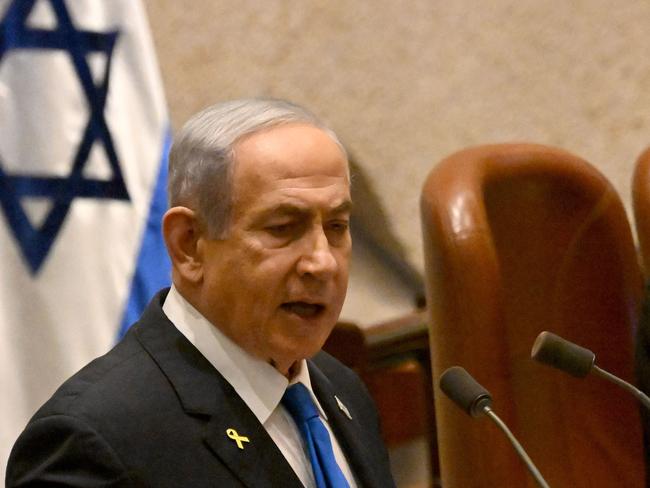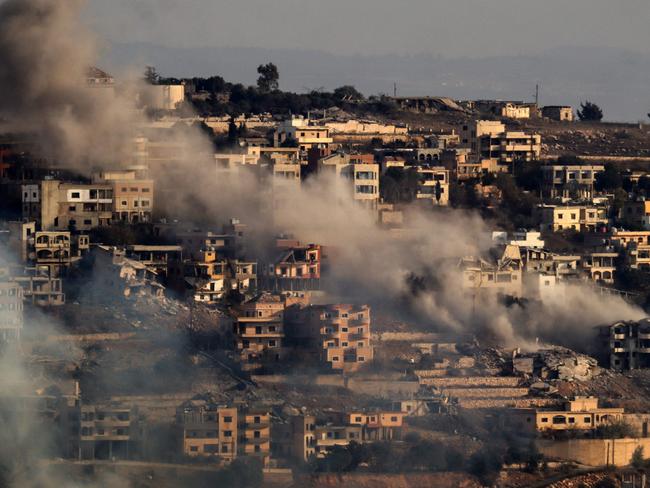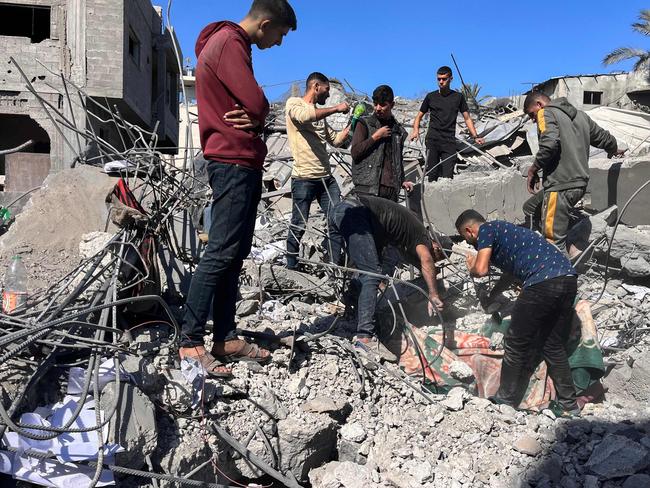Israel war: ‘Massive destruction’ as Israel bombs Lebanon despite truce talks
Recent truce talks have been sensationally ignored as Israel’s military bombed targets in Lebanon and vowed to continue its devastation. Follow the updates.
Lebanon’s prime minister has accused Israel of rejecting a ceasefire after its Israeli military bombed Hezbollah targets in the south of Beirut for the first time this week on Friday.
At least 10 strikes hit the southern suburbs before dawn after the Israeli military issued evacuation warnings.
“The raids left massive destruction in the targeted areas, as dozens of buildings were levelled to the ground, in addition to the outbreak of fires,” Lebanon’s National News Agency reported, adding that strikes also targeted Aley, southeast of the capital, and Bint Jbeil in the country’s south.
The Israeli military said it continued operations against the Iran-backed Hezbollah in Lebanon and its Palestinian ally Hamas in the Gaza Strip.

The strikes came just a day after Israeli Prime Minister Benjamin Netanyahu met US Secretary of State Antony Blinken to discuss the possibility of a ceasefire.
Blinken said negotiators had made “good progress” toward a deal.
The top US diplomat said that Washington was “working very hard” on concluding arrangements on a deal that would include the withdrawal of Shiite militia Hezbollah from the border region with Israel.
“Based on my recent trip to the region, and the work that’s ongoing right now, we have made good progress on those understandings,” Mr Blinken told reporters.
“We still have more work to do,” he said, calling for a “diplomatic resolution, including through a ceasefire.”

Two senior US officials, Amos Hochstein and Brett McGurk, met with Israeli Prime Minister Benjamin Netanyahu, who said that any deal on Lebanon must guarantee Israel’s security.
Unlike in the year-old war in Gaza, the United States has stopped short of calling for an immediate ceasefire in Lebanon and has largely backed Israeli strikes against Hezbollah, while voicing concern for the fate of civilians.

Defence Secretary Lloyd Austin, speaking alongside Mr Blinken and their South Korean counterparts, said there was an “opportunity” in Lebanon.
“We’re hopeful that we will see things transition in Lebanon in a not too distant future,” Austin said.
According to Israeli media reports citing government sources, the plan brokered by the US team would see Hezbollah forces retreat around 30km from the border, north of the Litani river.
Israeli forces would withdraw from Lebanon and the Lebanese army would then take charge of the border, alongside UN peacekeepers.
Lebanon would be responsible for preventing Hezbollah from rearming itself with imported weapons, and Israel would retain its rights under international law to act in self-defence.

FOLLOW UPDATES BELOW:




